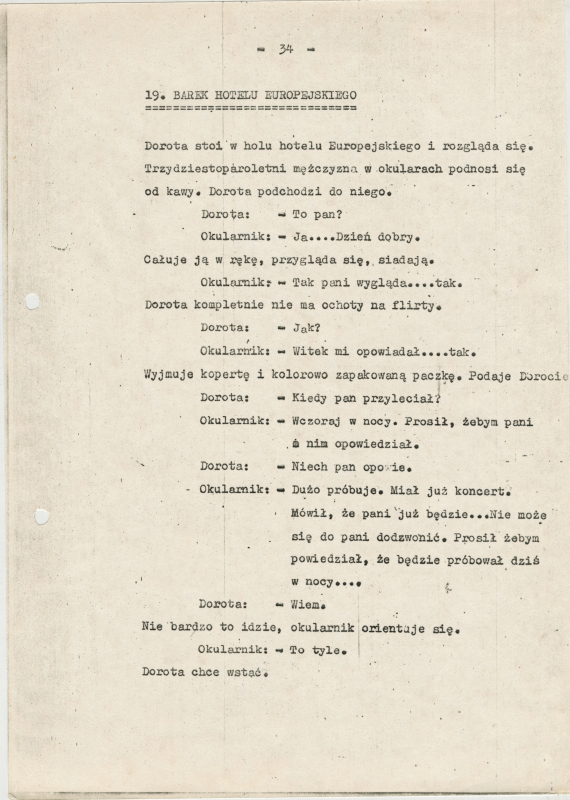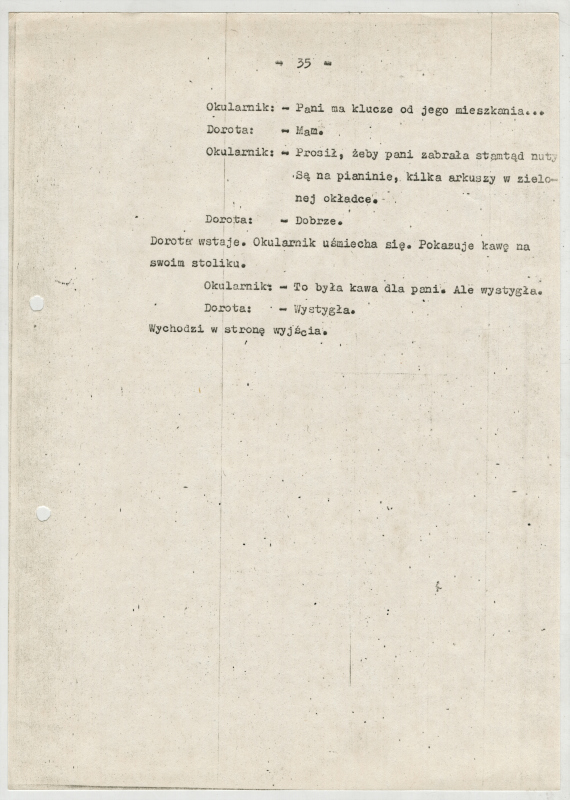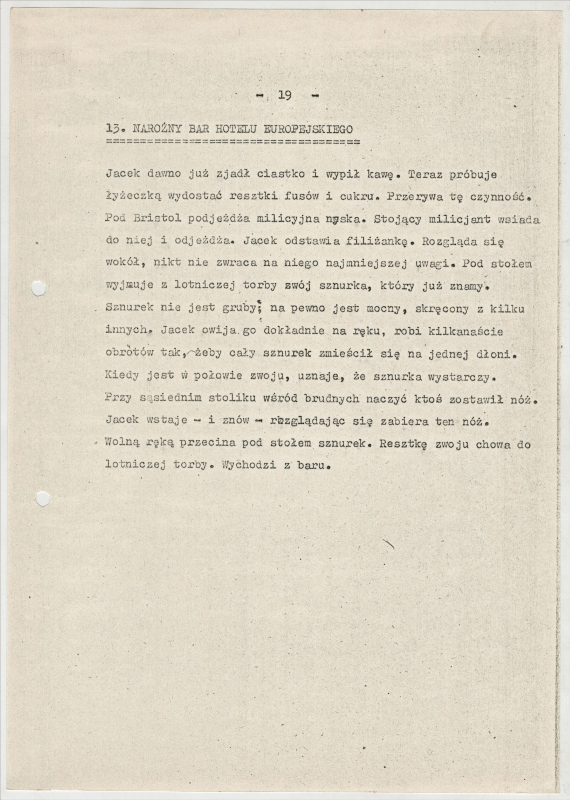European Hotel Café
The café at the European Hotel was a popular meeting place in pre-1989 Poland, and foreign guests would often be invited there. It was frequented by intellectuals and artists associated with the nearby Academy of Fine Arts—as well as members of Warsaw criminal underground. The café was a favorite location for filmmakers to shoot “big city” scenes.
Decalogue Two
At a hotel café, the main character Dorota (Krystyna Janda) meets with a young man (Aleksander Trąbczyński) dispatched by her lover, who is currently on tour abroad. More than any other scene in the film, this moment expresses the remoteness—even absence—of the other love of her life (after her husband), and in one of the most trying times in her life, no less. Dorota comes to the café directly from an appointment with her gynecologist, whom she tells of her decision to terminate her pregnancy, and asks that he schedule the procedure. The friendly but unfamiliar man at the café cannot fill the void left by the child’s father in this crucial moment. There’s no doubt about it: her beloved is the man she really wants to see now. His polite friend can do little more than deliver a gift and a request from the lover (to retrieve a musical score from his flat). Dorota has been making plans to travel abroad to meet the man, whom we never see but whose voice we hear over the phone, making his absence even more painful. The part is voiced by Piotr Fronczewski, a highly popular actor in the 1980s. The use of a hotel café in Warsaw as a location where a woman acutely experiences the absence of a lover echoes a similar theme in Kieślowski’s earlier film No End (1984), while an affair between two musicians also appears in the plot of Three Colours: Blue (1993).
Decalogue Five
Two of the characters pay simultaneous yet separate visits to this café: Jacek Łazar (Mirosław Baka), the twenty-year-old drifter who is about to commit a crime, and Piotr Balicki (Krzysztof Globisz), his future public defender, who has come to celebrate passing the bar exam. Decalogue Five and its feature-length version, A Short Film About Killing, feature numerous tropes based on the professional experiences of the screenplay’s co-author Krzysztof Piesiewicz, who had served as the defense for many criminals facing the death penalty. Jacek’s character was inspired by the true story of a boy who had come to Warsaw from the countryside a few years earlier, got lost in the big city, and was murdered near Warsaw’s East Railway Station. His body was found encircled with stones. In the script, the boy became the murderer, bludgeoning his helpless victim with a stone. At the time when Kieślowski and his co-author were writing the screenplay, Piesiewicz was involved in the trial of the Communist Security Service officers responsible for kidnapping and murdering the Solidarity chaplain Father Jerzy Popiełuszko. In July of 1989, two months before the famous screening of The Decalogue at the Venice Film Festival, unknown assailants murdered Krzysztof Piesiewicz’s mother in a manner that mimicked the death of Father Popiełuszko. When the two friends met shortly after the murder, Hanna Krall writes in Biała Maria (White Mary), Piesiewicz allegedly said to Kieślowski, “Our Short Film About Killing has come true.”


